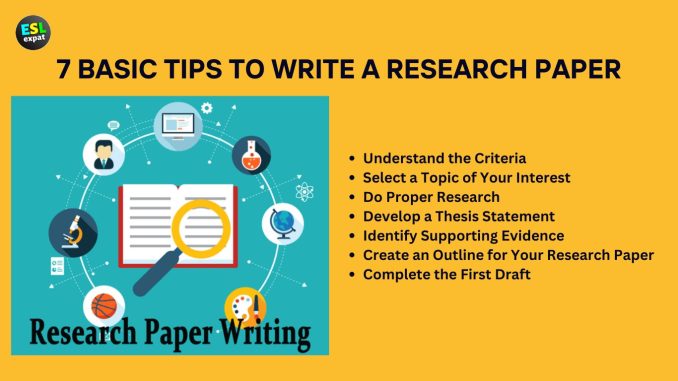
In the academic and professional realms, the research paper stands as a cornerstone of knowledge dissemination and intellectual discourse. It is far more than a mere compilation of facts; it is a meticulously constructed argument, a narrative of inquiry, and a testament to rigorous investigation. Crafting a truly impactful research paper requires moving beyond simply fulfilling requirements to genuinely engaging with the subject matter, presenting findings with clarity and precision, and contributing meaningfully to the existing body of knowledge. This endeavor, while challenging, is immensely rewarding, honing critical thinking, analytical prowess, and the art of persuasive communication.
The genesis of a superior research paper lies in the meticulous selection and refinement of the research question. A well-defined question is the compass that guides the entire investigative process, ensuring focus and coherence. It should be specific, arguable, and researchable within the available time and resources. Rather than embarking on a broad topic like “the impact of technology,” a more refined question might be: “How has the adoption of AI-powered customer service chatbots influenced customer satisfaction levels in the European retail sector over the past five years?” This narrower scope allows for deeper exploration and more concrete findings. Invest time in this initial phase; a weak question inevitably leads to a fragmented and unconvincing paper.
Once the research question is firmly established, the next crucial step involves a comprehensive and systematic approach to gathering evidence. This is not merely about accumulating information but about critically evaluating sources for credibility, relevance, and bias. Relying solely on easily accessible internet sources is a common pitfall; instead, delve into academic databases, peer-reviewed journals, scholarly books, and reputable institutional reports. For empirical studies, consider primary data collection methods like surveys, interviews, or experiments, ensuring ethical considerations are meticulously adhered to. Effective note-taking during this phase is paramount, capturing key arguments, data points, and source details to prevent plagiarism and facilitate seamless citation later. Imagine a business student researching the efficacy of remote work models. They would not only review published studies but might also conduct interviews with HR professionals from companies that have successfully implemented remote policies, adding a unique, real-world perspective to their analysis.
With a robust body of evidence in hand, the real intellectual heavy lifting begins: analysis and synthesis. This is where you move beyond summarizing information to interpreting it, identifying patterns, connecting disparate ideas, and constructing your own informed argument. Avoid simply listing findings; instead, explain what the data means in relation to your research question. Look for contradictions, nuances, and implications. For example, if your research on AI chatbots reveals that while they improve response times, they sometimes fail to resolve complex customer issues, your analysis would explore the trade-offs and suggest areas for improvement, rather than just stating the speed benefit. This analytical depth demonstrates genuine understanding and critical engagement with your subject.
The structure of your research paper is the framework upon which your argument is built, and a logical, intuitive flow is essential for clarity. While specific formats vary, a typical research paper includes an introduction, literature review, methodology, results, discussion, and conclusion. The introduction should hook the reader, provide necessary background, and clearly state your research question and thesis statement. The literature review places your research within the broader academic conversation, showing how your work builds upon or challenges existing knowledge. The methodology section transparently explains how you conducted your research, ensuring replicability and validity. The results present your findings objectively, often using tables or figures. The discussion interprets these results, links them back to your research question, and considers their implications and limitations. Finally, the conclusion summarizes your main points, reiterates your thesis, and suggests avenues for future research. Each section should transition smoothly, guiding the reader through your intellectual journey.
Clarity, conciseness, and precision in language are the hallmarks of a well-written research paper. Academic writing demands objectivity and a formal tone, avoiding colloquialisms, contractions, and overly emotive language. Every sentence should serve a purpose, contributing to the overall argument without unnecessary verbosity. Pay meticulous attention to grammar, punctuation, and spelling, as errors can undermine your credibility. Furthermore, proper citation and referencing are non-negotiable. Whether using APA, MLA, Chicago, or another style, consistency is key, and every piece of information not originally yours must be attributed to its source to avoid plagiarism. A paper on corporate social responsibility, for instance, must scrupulously cite all definitions, statistical data, and theoretical frameworks borrowed from other scholars.
Finally, the revision process is where a good research paper transforms into a great one. Do not underestimate the power of multiple drafts. Begin by reviewing the overall argument: is it logical, compelling, and well-supported? Then, scrutinize each paragraph for coherence and clarity. Check sentence structure for variety and flow. Consider asking a peer or mentor to read your paper for fresh perspectives and constructive criticism. Often, a fresh pair of eyes can spot ambiguities or weaknesses that you, as the author, might overlook. This iterative process of writing, critiquing, and refining is not a sign of weakness but a mark of scholarly rigor, ensuring that your final submission is a polished, persuasive, and truly impactful contribution to your field.